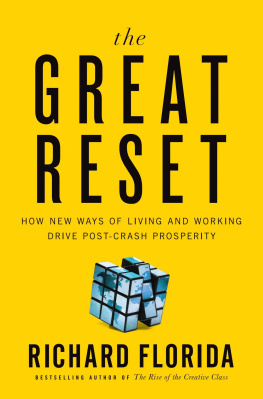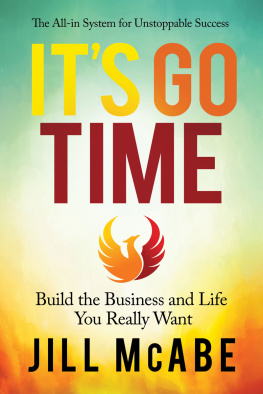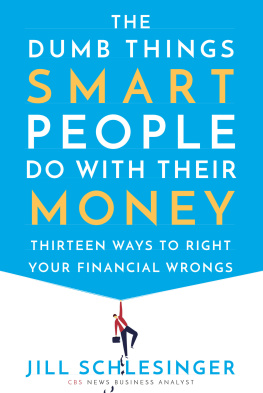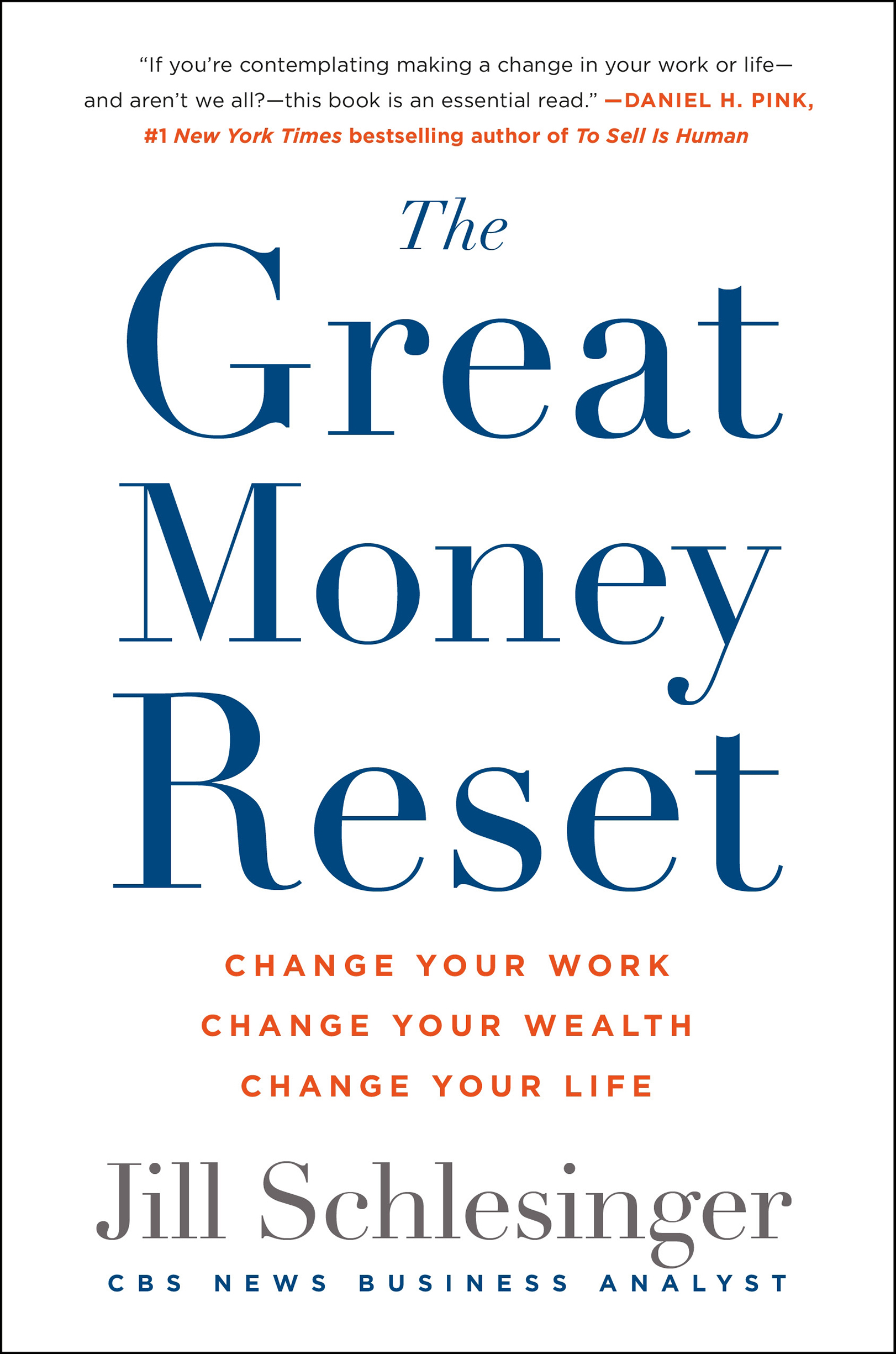Contents
Guide
Pagebreaks of the print version

The author and publisher have provided this e-book to you for your personal use only. You may not make this e-book publicly available in any way. Copyright infringement is against the law. If you believe the copy of this e-book you are reading infringes on the authors copyright, please notify the publisher at: us.macmillanusa.com/piracy.
For Mark, the best Executive Producer ever, and for the community that we have created
Ive written this book in hopes of giving anyone contemplating or undertaking a big life or career change the money advice they need to reach their goals. Although the people in this book are real, Ive altered some names and identifying details to protect the privacy of those involved. For more discussion of key ideas covered in this book, please visit my website Jill on Money. Certain stories, discussions, and pieces of advice in this book first appeared there.
Many of us fantasize about making proactive changes to our lives, whether its reexamining a long-term relationship, telling a boss to take their job and shove it, finding a new place to live, or simply listening to a quiet, internal voice that says we must step back and figure out a new path. But relatively few of us turn those fantasies into reality. We get stuck in neutral, unable to break with our existing reality and take meaningful action.
One thirtysomething friend of mine, Melissa, escaped that trap. Since the mid-2000s she had lived on her own in New York City, working at large media companies. On a superficial level, she was happy enough. She earned a series of promotions, enjoying increasing amounts of freedom and responsibility as well as the opportunity to travel, spend time with and learn from important and interesting people, and stay in touch with current events. She also bonded with her colleagues and enjoyed their company both in and outside of the office.
Increasingly, however, Melissa wondered about her career and how it fit into her lifes larger direction. The demands of her job were intense, often requiring her to work overnight hours and weekends. During one stretch, she had to show up at one oclock in the morning for a period of months to help her team get their work done. Although she navigated the constant fatigue and managed to keep herself relatively healthy and fit, she had little time or energy left over to do what most of us do in our twenties and thirties: hang out with friends, try new hobbies and activities, and get to know who we really are. It felt like work was all she did.
Melissa dreamed about stepping off the fast track and doing something else that would allow her more balance and, in particular, the time and space to find a mate, maybe get married, and build a family. But again and again, she put her head down and shunted those dreams aside. Her job paid well, she was good at it, and others perceived it as interesting and glamorous. Even if she wanted to leave, a part of her doubted whether, after so long in her chosen field, she had the skills required to succeed in another career.
Melissa might have continued muddling through had the COVID-19 pandemic not shattered her long-standing status quo. As the country went into lockdown, her job, like so many others, became virtual. No longer could Melissa travel or enjoy in-person, stimulating interactions with her colleagues. It was all Zoom, all the time.
The pandemic also made her work much more complex, greatly increasing the demands on her time and worsening the stress she felt. When she wrapped up work for the day, she felt utterly exhaustedit was all she could do to turn on Netflix for a few minutes. I found it really hard, Melissa recalled. Youve removed the happy things and things you enjoy and get fulfillment out of and youve added all of this other bullshit. And basically, I got to the point where I was working all the time and I had no life, and I was also so isolated, because I was living by myself. I kept thinking, This is not fun. Its not fun. Its not enough for a life. No amount of time binge-watching Ted Lasso could lift her beleaguered spirits.
With her friends and mentors telling her she was burned out, Melissa took some time off, hoping shed return refreshed and invigorated. It didnt work out that way. Although initially she felt happy and energized to be back, the old doubts returned stronger than ever. As she now recognized, she had been so busy before the pandemic, so distracted with daily demands and the stimulation of travel and living in New York City, that shed been able to push through month after month, year after year, without confronting her deeper doubts. The pandemic took everything away and stripped life back to its essence. It allowed me to see very clearly that having such an intense job wasnt enough for me and that I needed to make some large-scale changes.
Checking her finances, Melissa calculated she had enough saved to allow her to take a sabbatical from work while still covering the mortgage on her condo and her other expenses. So she made a radical decision: She would quit her job and embark on an extended trip to visit friends and family across the United States.
I spoke with Melissa when she was pondering this move, and she told me that she had no job lined up upon her return and no clue what she would do. She planned to use this time away to turn off social media, detach from her day-to-day routine, get in touch with nature, take a deep look at her life, and figure out where to go from there. Would she move to a job that was less intense and remunerative but that afforded her more free time? Maybe. Shed have to see. All options were on the table, including taking a job with a different company, switching careers, even moving to a different city.
When Melissa ran the idea of quitting by her parents, they thought she was crazy. How could she leave an amazing job without another lined up? Although they did recognize the strain shed been under, they begged her to reconsider. When she told her boss she was quitting, he also exerted pressure, doing everything possible to keep Melissa, including offering her a promotion and a sizable raise.
As tempting and flattering as that offer was, as much as she knew shed miss her colleagues, and as scary a prospect as her impending joblessness was, Melissa went through with her decision. Her grandfather had died recently at the age of ninety-three, and at his funeral Melissa had noted the profound impact he had made on those around him. What would people say about her if she died? That she had been good at her job? Clearly thats not what she wanted.
On top of everything else, Melissa recognized that her career, as great as it was in many respects, just didnt give her the sense of purpose she craved. Life was short, and she wanted to have a meaningful impact on those around her while she still could. It was time to take a risk and make a change.
When I heard of Melissas frustrations and her desire to quit her job, I was deeply moved. I had gone through a major career and life transition during the late 2000s, so I empathized with the position of feeling stuck in life. I also well understood the anxiety Melissa felt at breaking with the status quo. I had been living in Providence, Rhode Island, working at a financial planning firm that Id helped grow from a fledgling start-up to a regional powerhouse, and appearing on local radio and television on the side. After an important relationship in my life ended, I found myself asking myself the very same questions Melissa pondered.









